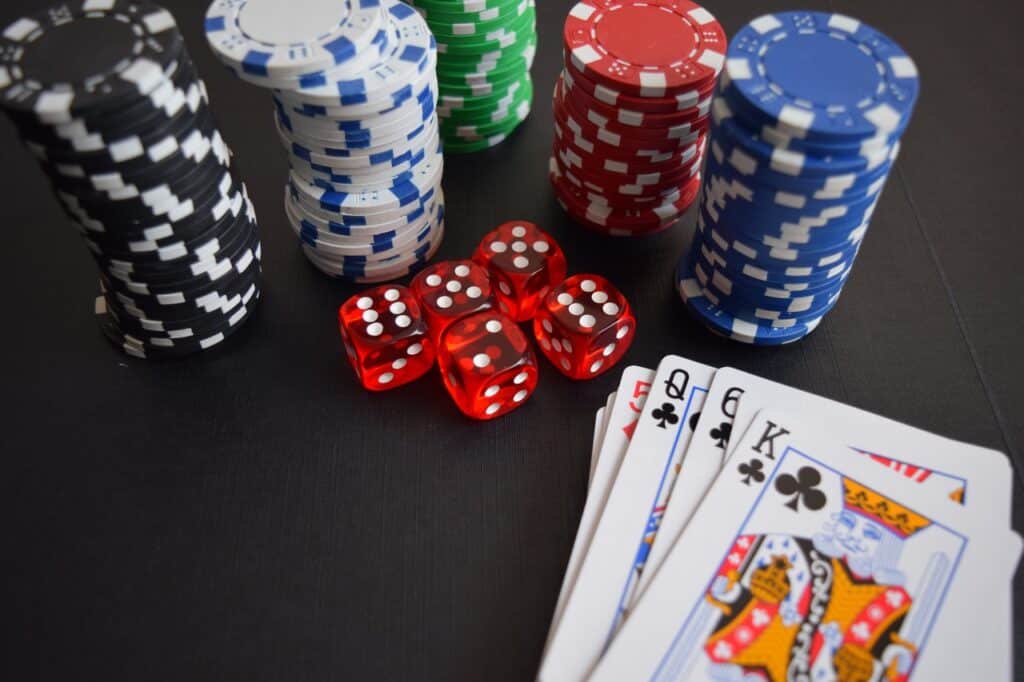Addiction negatively impacts a person’s life in many ways. These consequences can be emotional, physical, and/or social. However, the person who is abusing a substance isn’t the only one who suffers. Drugs and alcohol aren’t the only addictions that exist. When it comes to the effects of compulsive gambling on family members there are serious consequences to consider.
A person who is addicted to gambling may think they are the only one who can be hurt by their addiction, however, this is not true. Gambling has a profound effect on family members including spouses and children. To better understand the negative effects of gambling, we’ll break down the many different ways that families feel the negative effects of gambling addiction.
What is a Gambling Addiction?
Gambling addiction is a disorder that causes a person to gamble uncontrollably. also known as compulsive gambling This type of addiction renders an individual unable to stop gambling despite the problems it causes for them. The uncontrollable need to gamble is a very serious issue in the life of the addict and can lead to very serious consequences regarding their health, financial stability, and family life.
While many people can walk into a casino and enjoy gambling as a novelty, the same is not true for everyone. People who develop a gambling addiction are constantly preoccupied with thoughts about gambling. They generally spend a lot of time planning how to produce more money to gamble with and continue to gamble regardless of how much money they lose.
In addition to these aforementioned signs of gambling, the following can indicate that you or someone close to you has a gambling addiction:
- Needing to gamble more and more over time to produce the same pleasurable feelings that come from gambling
- Being unable to stop gambling despite wanting to quit
- Continuing to gamble despite the negative consequences it produces in your life
- Noticing the effects of gambling on family, work, friends, or school and not ceasing to gamble
- Lying to people in your life about the extent to which you gamble
- Chasing losses or trying to earn back the money you lost gambling by gambling more
- Stealing in order to get more money to continue gambling
- Asking friends, family, or colleagues for money to cover gambling debts or to gamble more
- Experiencing feelings of irritability when you attempt to stop gambling or when you cut back on gambling
What is a Process Addiction?
A process addiction or a behavioral addiction is an addiction to behaviors. Medical professionals believe that as long as the criteria for addiction are met, a person can become addicted to something that isn’t a substance. This can be seen in other process addictions such as sex addiction or internet addiction. In these cases, a person is addicted to a behavior that produces a feeling.
A process addiction is not the same as an addiction to drugs or alcohol, although it can be just as destructive in terms of its effects on family and relationships. While the physical signs of addiction are absent in someone with process addiction, the consequences are often similar. This is because a person with an addiction will often do anything to access their fixation. Other process addiction can include the following:
- Media use
- Sex addiction
- Internet addiction
- Video Game addiction
- Television compulsion
- Eating disorders such as binge eating
- Sports addiction and excessive exercise
The Effects of Gambling on Family Units
When a member of a family is a compulsive gambler, they aren’t the only person who suffers. Often, the people closest to an individual with a gambling addiction are subject to the consequences of the gambler’s behavior. This is especially concerning when we consider how many people in the United States currently have a gambling problem.
It’s believed that at least 1% of the population, or 2.6 million people, have a gambling addiction. This may not sound like a large figure, but we must also consider the effects of gambling on families. Many more people are affected than statistics can show, in these cases. With the accessibility of online gambling, which is considered to produce the same pleasurable feeling of in-person gambling, this figure is expected to increase over time.
Emotional Effects of Gambling on Family
One of the negative effects of gambling on family takes the form of emotional consequences. Often, to hide gambling, an individual will lie to their family. They may even steal or sell precious heirlooms or household items to fuel their habits. This can cause a range of emotional devastation to a family as they lose trust and respect for the gambler.
The tension between spouses is not something that goes unnoticed by children if a couple has them. Children often look to their parents for emotional security and notice when something is off. This can cause children to become entangled in the effects of gambling on the family as they notice a shift in the family dynamics. Children may often even experience the same emotional distress as the affected spouse. These emotions can include the following:
- Guilt
- Anger
- Regret
- Shame
- Anxiety
- Insomnia
- Depression
- Emotional insecurity
The most adversely affected relative is often children. They may feel neglected because they’re unable to get their needs met due to time spent away from home trying to make money. Their grades can begin to slip as they experience emotional and behavioral issues at school that prevents them from focusing on education.
Financial Effects of Gambling on Family
The financial effects of gambling on families are often particularly devastating. It’s often difficult for a spouse of a gambling addict to find a balance between support and enabling. They may bail their spouse out of debt or supply them with money to prevent them from gambling. However, this can backfire and cause further financial harm.
As savings are spent at the casino, families with a compulsive gambler experience a range of financial difficulties. They may experience bankruptcy, higher credit card debt, and the loss of their car or home. The family may even face eviction if rent payments are unable to be made.
Concerningly, families can even get to a point where they often go without basic necessities. These can include electricity and water as they struggle to keep up with bills as they are due. The gambler may go without needed medical care, for themselves or their children, because they need to save money to pay off debts or because they spend all the money they obtain on gambling.
Effects of Gambling on a Spouse
The spouse of an individual with a gambling addiction also suffers greatly. The increased pressure to financially support the family while the addicted partner gambles precious resources away causes intense pressure for the unaddicted spouse. This can result in the stable spouse pulling away emotionally and physically, putting further strain on the relationship.
A common result of gambling addictions and the effects of gambling on the family is sexual dysfunction between partners. As a spouse loses their sense of security, trust in their partner, or vision of their future together, they will often also lose interest in sex. This reduction in intimacy can be devastating for couples who otherwise would not have experienced a loss of intimacy. Further, the addicted spouse’s lack of interest in anything other than gambling worsens this problem over time.
Additionally, a gambling addict’s spouse may experience trauma disorders such as post-traumatic stress disorder (PTSD) that can occur when they are exposed to domestic violence or emotional abuse. As tensions rise, partners may begin to fight more. This can escalate into physical violence or emotional abuse from either partner as they both struggle to control the situation.
Health Effects of Gambling
While the health effects brought on my gambling may not compare to the effects of substance abuse, there are many adverse effects that may occur. Stress plays a large part in the life of a gambling addict. As their relationships and financial standing deteriorate, stress can cause anxiety disorders or depression. As the pressure due to gambling losses adds up, the individual may even be tempted to take their life.
There is also a link between compulsive gambling and substance abuse. Many gamblers become more reckless in their spending when they are under the influence of drugs or alcohol. Casinos also generally allow smoking inside of game lobbies, which exposes gamblers to harmful secondhand smoke or tempts them to smoke.
The health effects of gambling addiction will vary depending on the individual addict and their situation, but overall it is safe to say that all types of habits take a huge toll on both mental and physical health. Gambling addiction can even lead to an increase in drinking or smoking because addicts are more likely to turn to drugs or alcohol in order to cope with the effects of their addiction.
Recovering from a Gambling Addiction with Lifetime Recovery
To prevent lasting consequences for the addict and the effects of gambling on family members, treatment is available. If you’re experiencing a lack of impulse control that is driving you to gamble, we offer gambling addiction treatment to break this destructive cycle. While you may not be able to recover the money and time spent on gambling, you can prevent future harm to your loved ones by working with our treatment specialists.
Through various treatment options such as therapy, support groups, and counseling, we give our patients the tools they need to support themselves. Additionally, we offer support for families of gamblers through family therapy sessions.
If you or a loved one is experiencing an addiction to gambling, contact us today. We will work with you to create a treatment plan that best meets your needs. A gambling-free future is one call away.


